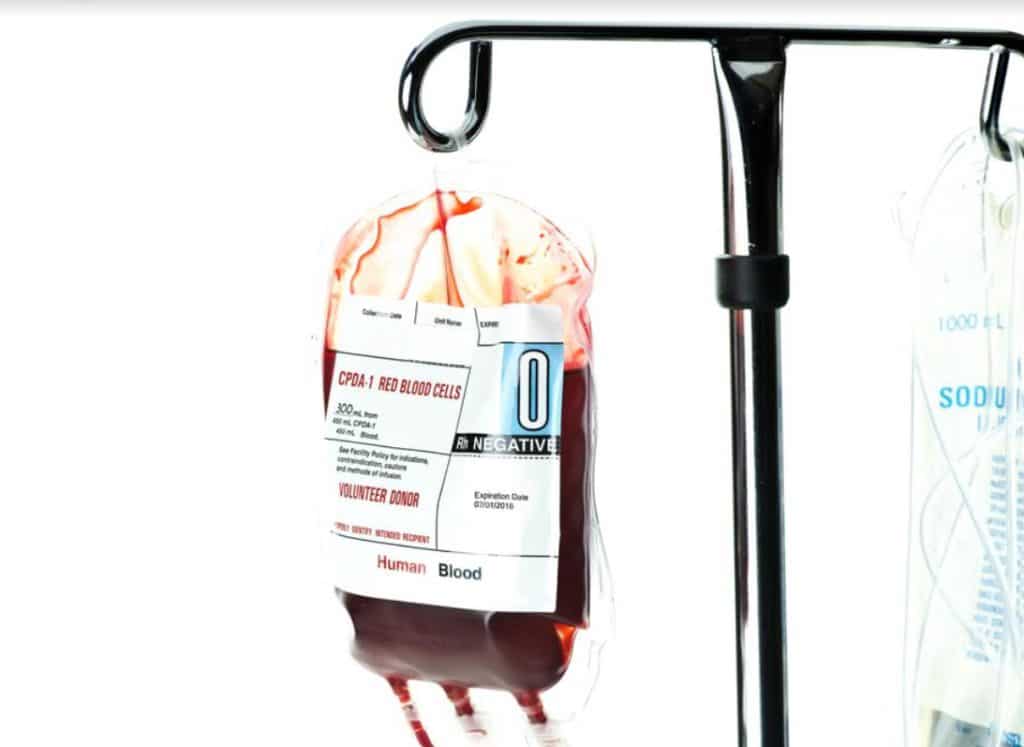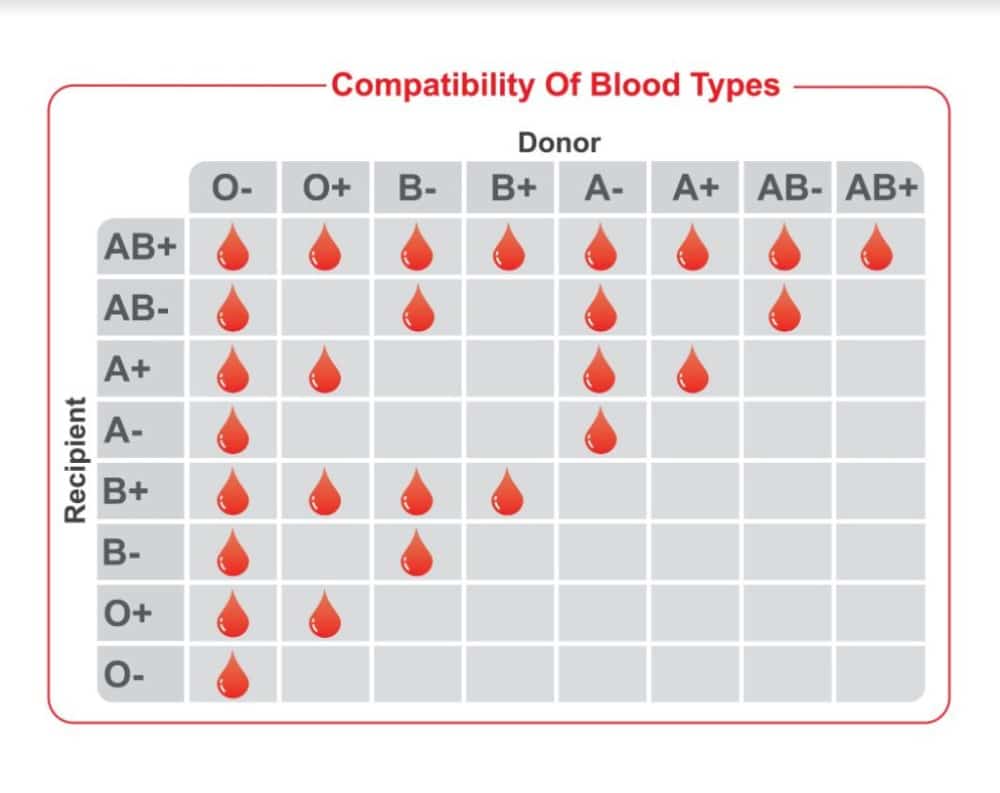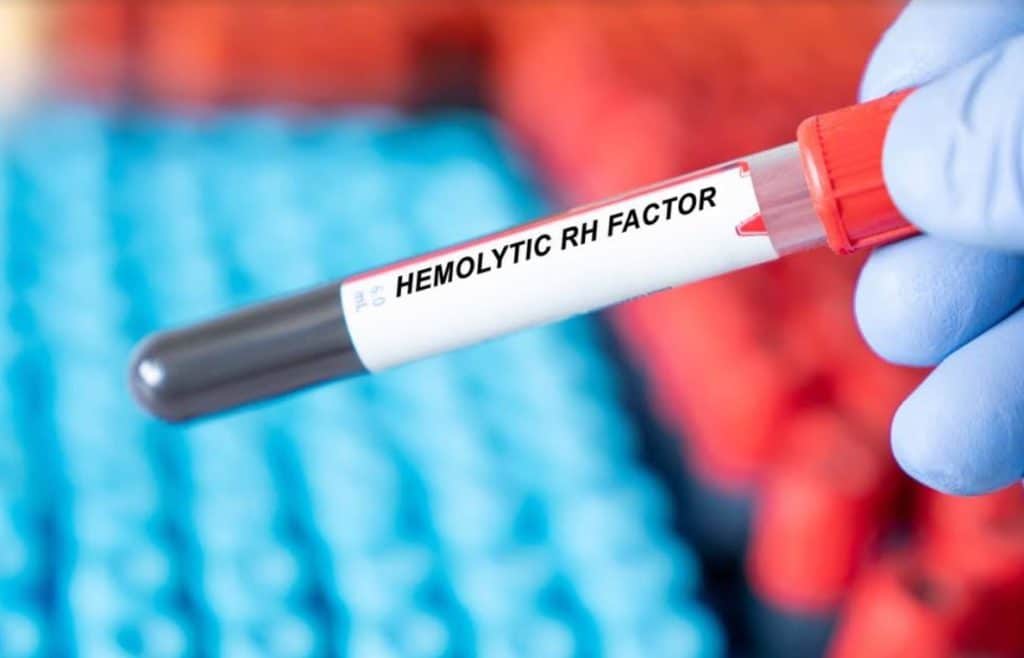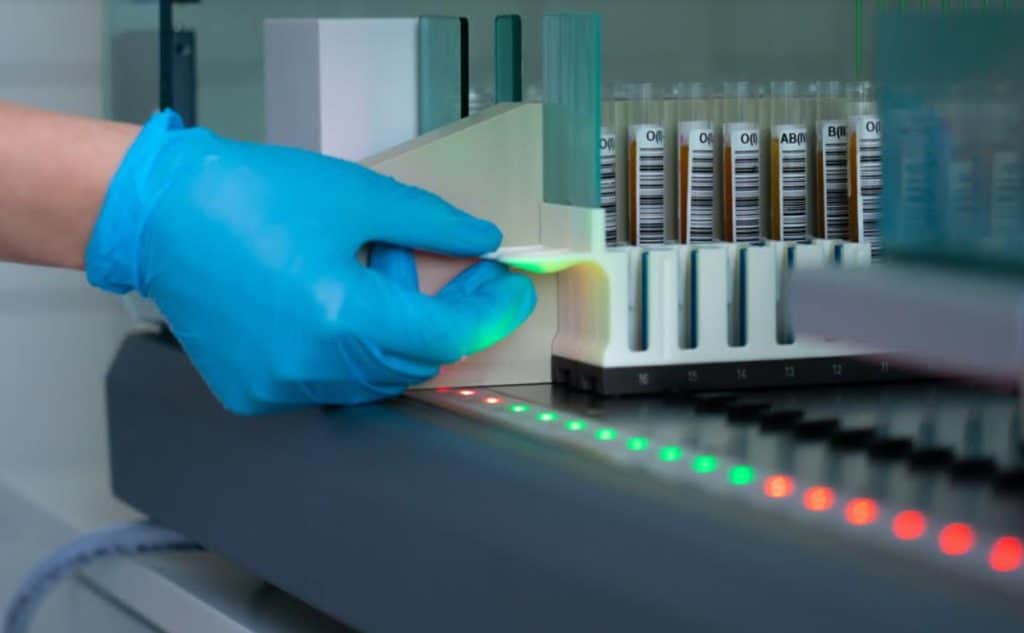Blood group compatibility is really important in marriage and pregnancy. As a result, it is essential to understand when and how your partner’s blood type can affect you.
A blood type compatibility chart for marriage is useful for couples since it explains how your blood type may impact your spouse’s blood type and that of your children. It can assist in ensuring that you don’t experience problems with blood donation and pregnancy, which could have an impact on your marriage. Furthermore, it helps to determine if you and your partner have compatible blood types.

This article covers all you need to know about blood group types and blood group compatibility for marriage.
Blood Group System
Depending on which antigens and antibodies are present or absent, there are many blood group types. It is based on whether or not your red blood cells have antigens A or B on their surface. A molecule known as an antigen is one that causes an immunological reaction. That is, immune cells produce specific antibodies against specific antigens.
There are four main blood groups:
- Blood Group A: People with this blood group have A antigens on their red blood cells and anti-B antibodies on their plasma.
- Blood Group B: Individuals with blood group B have B antigens on their red blood cells and anti-A antibodies on their plasma.
- Blood Group AB: Individuals with this blood group have both A and B antigens on their red blood cells and have no antibodies on their plasma.
- Blood Group O: people with blood group O have no antigens on their red blood cells but have both anti-A and anti-B antibodies on their plasma.
A key fact to note is that you inherit your blood type. Therefore, it is present at birth and remains constant throughout your life.

How does Blood Compatibility affect Pregnancy?
Couples should only be concerned with blood type compatibility if there is a pregnancy and both partners are the biological parents.
The RH factor is responsible for that.
Rh factor is a hereditary protein, thus your parents will determine whether you are Rh positive (+) or Rh negative (-). Interestingly, Rh-positive is the most typical and common type. Rh status, whether positive or negative, normally has no effect on health, but it could have an impact on a pregnancy.
Rh Factor and Pregnancy
If the biological mother is Rh- and the child is Rh+, the Rh factor may be a problem. An immunological reaction caused by blood cells from a Rh+ infant entering the bloodstream of its Rh- mother. Antibodies produced by the mother’s body could target the baby’s Rh+ red blood cells.

Your doctor will advise a blood type and Rh factor check during your initial prenatal appointment. Later in your pregnancy, if you are Rh-, the doctor will perform another blood test to see whether you have developed antibodies against the Rh factor, which would suggest your child is Rh+. Your pregnancy will be monitored closely for any problems related to Rh incompatibility and may require further care if your doctor discovers a potential for it.
A small quantity of your blood and your baby’s blood may come into contact during delivery, despite the fact that this rarely happens while you are pregnant. If this occurs and there is Rh incompatibility, your body may develop Rh antibodies against the Rh factor. An Rh+ infant won’t experience any issues from these antibodies throughout the first pregnancy. However, they might become problematic if you conceive again and this time your baby is Rh+.
These maternal antibodies can harm the baby’s red blood cells if there was an Rh incompatibility during the first pregnancy and there is an Rh incompatibility during subsequent pregnancies. Your infant may require a red blood cell transfusion if this happens.
Treatment of Rh incompatibility
Your doctor will probably advise Rh immune globulin (RhoGAM) in your seventh month of pregnancy if Rh incompatibility has been identified, and again within 72 hours of delivery if your baby’s blood type is determined to be Rh positive. Rh immune globulin contains Rh IgG antibodies. Therefore, your body won’t make its own Rh antibodies in response to your baby’s Rh-positive cells as it would to other objects.
Blood Transfusions between Partners
If you or your partner require a blood transfusion, knowing your blood types are compatible could be helpful. Blood cannot be donated/transfused between two people with incompatible blood types. A transfusion of the wrong type of blood product can result in a possibly fatal adverse reaction.
For most couples, being able to provide needed blood for a spouse with a medical condition might not be a deal breaker. However, it could be a great advantage in an emergency.
Blood group compatibility is as follows:
- Type AB+ is a universal recipient and can receive a transfusion from all blood types.
- Type O- is referred to as a universal donor and can donate red blood cells to all blood types.
- Type A blood can receive a transfusion from type A and type O red blood cells.
- Type B blood can receive a transfusion from type B and type O red blood cells.
Rh+ or Rh- blood can be given to those who are Rh+, but if you are Rh-, you can only receive Rh- blood.
Make sure you and your future spouse have compatible blood types if you want to be able to donate blood to them.

Summary
Only the potential Rh factor incompatibility during pregnancy affects blood group compatibility for marriage. Additionally, that is only applicable to pregnancies in which both partners are biological parents.
Potential issues with Rh incompatibility can be quickly discovered, monitored, and successfully treated. Rh factor compatibility shouldn’t interfere with your capacity to build a successful marriage and have healthy children.
If you don’t know your blood type or your spouse’s blood type, you should go for a blood typing test. While blood type doesn’t stop many couples from getting married, it will help to know the blood group you belong to as it might help when you need to give your partner blood transfusions.

